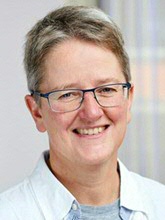Preventing extreme violence by understanding perpetrators: Conclusions from 30 years of research on perpetrators of international crimes and terrorism

The persecution of Jews in Nazi Germany, the wars in former Yugoslavia, Syria, Iraq, Ukraine, Israel and Palestine, terrorist attacks, sexual violence: all raise the question of who is capable of such things. What kind of people are behind these atrocities and what motivates them? Alette Smeulers, professor of international crimes at the University of Groningen, researches perpetrators of extreme forms of mass and political violence. Her conclusion: 'The biggest mistake we can make is thinking that a perpetrator is completely different from ourselves.'
'Research shows that we are all potentially capable of atrocities. When the circumstances are right, we can become perpetrators. Not because we are evil, but because we are weak,' Smeulers said. 'It is a process, in which we go with the flow. We don't dare say ''no'', because we don't want to be excluded from the group. We justify and rationalize it by saying we didn't have a choice, we had to do it because we are good fighting evil. It's a mental trap we get caught in.'
Smeulers has been researching perpetrators of international crimes and terrorism for more than 30 years. She recently published the book Perpetrators of Mass Atrocities - Terribly and Terrifyingly Normal?. Each chapter discusses a particular type of perpetrator. Featured are Vladimir Putin, Osama bin Laden and Anders Breivik, among others. Many stories such as that of notorious Nazi doctor Josef Mengele show how even hitherto law-abiding citizens can become involved in the most heinous crimes. However, the book also shows that perpetrators are very different: some are prone to violence, while others are driven primarily by obedience, ideology, material gain or self-interest.
Almost all perpetrators are shocked when they first commit an atrocity. However, they get over their horror and lift their conflicted feelings by justifying their actions. 'By far the most atrocities in the world have been committed by people who thought they were the ones who were doing the right thing', Smeulers said. 'Even people who have committed the most heinous acts of violence continue to see themselves as the ones who are virtuous. They define themselves as the good guys, the righteous, and their enemies as the evils, the bad guys, the barbarians. And in the struggle of good against evil, all means are permitted.'
Smeulers therefore finds the idea that Most people are virtuous, as the title of Rutger Bregman's bestseller assumes, problematic. 'What we need to move toward is the realization that we are capable of both good and evil. We need to be constantly aware that even if we have the best intentions and a legitimate interest, we are capable of extreme evil. Therefore, we must continually ask ourselves whether the choices we make are the right ones, and never, ever take for granted 'that it will be so because, after all, we are virtuous.' It is precisely the unconditional conviction that you yourself are virtuous that makes you blind to your own potential for evil.'
More information
a.l.smeulers rug.nl
06-31982626
This article was published by the Faculty of Law.
More news
-
08 December 2025
Colourful Characters: Bert Röling
